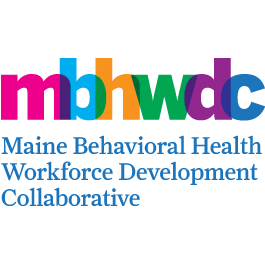Description
November 7-8, 2024 | 9:00am-12:00pm
Virtual via Zoom
NOTE:
-This training is for those who work in Maine.
-Those in peer support roles and substance use roles will be prioritized for this training.
Description:
This training will focus on the foundational pieces of developing a peer support program. This includes how to develop a mission statement, identify and understand performance measures, as well as identify and explore gaps in programming. This training considers ways to strengthen programming through strategic partnerships and explores how programs operate within larger systems.
Check out the other sessions in this series here: Session 1: Peer Support Supervision | Session 2: Developing Team Culture in Peer Support Programs | Session 3: Fundamentals of Peer Support Program Development | Session 4: Introduction to Peer Support Budgeting | Session 5: Advanced Peer Support Budgeting | Technical Assistance
Objectives:
• Understand the importance of mission statements and how to develop one
• Gain an understanding of measuring program performance
• Gain a foundational understanding of strategic partnerships and their purpose in growing and strengthening programs
• Learn to assess the landscape of available partners’ community needs to fill program gaps and align with their contract
• Gain knowledge in developing partnership agreements and performance/outcome targets and tracking data to assess effectiveness and impact of various partnerships
Presenter:
 Randy Morrison (he/him) is a person who personally understands the challenges of navigating substance use and mental health concerns. He is a Certified Intentional Peer Support (IPS) Specialist, IPS Trainer, and CCAR Recovery Coach trainer; and has a master’s in public health and a master’s in policy, planning and management. Randy spent over seven years leading the growth and implementation of peer support programs across Maine’s largest healthcare system before becoming a full-time trainer and consultant. During his time as a senior leader, he grew a peer support team of 3 peer supporters to over 65, the largest in Maine. The programs spanned substance use peer support, mental health peer support, youth peer support, and family/parent peer support. Those positions worked in a variety of settings as well, including emergency departments, primary care, behavioral health clinics, youth early intervention programs, case management programs, and four peer support centers. Randy was a co-author on a manual for integrating peer support into multidisciplinary and clinical settings. Randy is passionate about peer support fidelity and creating systems that center the people utilizing them.
Randy Morrison (he/him) is a person who personally understands the challenges of navigating substance use and mental health concerns. He is a Certified Intentional Peer Support (IPS) Specialist, IPS Trainer, and CCAR Recovery Coach trainer; and has a master’s in public health and a master’s in policy, planning and management. Randy spent over seven years leading the growth and implementation of peer support programs across Maine’s largest healthcare system before becoming a full-time trainer and consultant. During his time as a senior leader, he grew a peer support team of 3 peer supporters to over 65, the largest in Maine. The programs spanned substance use peer support, mental health peer support, youth peer support, and family/parent peer support. Those positions worked in a variety of settings as well, including emergency departments, primary care, behavioral health clinics, youth early intervention programs, case management programs, and four peer support centers. Randy was a co-author on a manual for integrating peer support into multidisciplinary and clinical settings. Randy is passionate about peer support fidelity and creating systems that center the people utilizing them.
Contact hours:
6 contact hours for social workers, licensed clinical professional counselors, and behavioral health professionals
6 category I contact hours for psychologists. CCSME is a pre-approved sponsor and provider of Professional Education Activities for Psychologists.
6 contact hours for Alcohol and Drug Counselors pending approval from the Maine Board of Alcohol and Drug Counselors.
6 contact hours for CHES. CCSME is a designated provider of continuing education contact hours (CECH) in health education by the National Commission for Health Education Credentialing, Inc.





